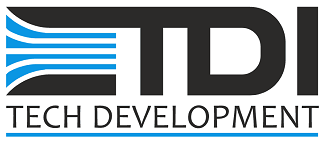In recent years, technology has radically transformed the way people and businesses interact with financial services. From mobile payments to robo-advisory platforms, fintech innovations are streamlining operations, increasing accessibility, and driving customer engagement. Central to this digital transformation is business analytics—a powerful discipline that enables fintech companies to harness data, derive insights, and make informed decisions.
Business analytics has significantly enhanced the fintech landscape by facilitating risk assessment, improving customer experience, enhancing compliance, and uncovering new revenue streams. Whether it is a startup disrupting legacy systems or a bank investing in new digital capabilities, understanding how to apply analytics is vital for success.
Let us explore the key business analytics use cases currently shaping the fintech industry and understand why aspiring professionals are flocking to gain expertise through a Business Analysis Course.
Risk Assessment and Credit Scoring
One of the most widely recognised applications of business analytics in fintech is credit scoring and risk assessment. Traditional credit systems often rely on fixed rules and outdated data sources. Fintech firms, on the other hand, employ advanced analytics to evaluate a borrower’s creditworthiness using real-time and alternative data sources, such as mobile usage, social media activity, and transaction history.
These data-driven models enable lenders to offer microloans, peer-to-peer lending, and instant credit approvals to individuals previously deemed ‘unbankable’. By analysing behavioural patterns and financial activity, analytics tools can predict the likelihood of default more accurately than traditional scoring systems.
Professionals equipped with technical skills are often the ones who design and refine these models, ensuring that lending practices are both inclusive and risk-sensitive.
Fraud Detection and Prevention
With digital transactions becoming the standard mode of interaction, cybersecurity and fraud prevention have become top priorities for fintech platforms. Business analytics enables companies to identify anomalies in transaction patterns that may indicate fraudulent activity.
Machine learning models can monitor thousands of transactions in real time, flagging unusual behaviour like location mismatches, large cash transfers, or rapid-fire transactions. These models learn from new data, evolving to detect increasingly sophisticated fraud attempts.
The proactive nature of business analytics not only protects customers but also helps maintain the credibility and reliability of fintech services. Analysts with expertise in cybersecurity techniques are often instrumental in building these fraud detection frameworks, working closely with data scientists and security teams to develop effective solutions.
Customer Segmentation and Personalised Services
Fintech firms operate in a competitive landscape where customer satisfaction is critical. By leveraging analytics, companies can segment their customer base based on demographics, spending habits, and life events. This segmentation enables the delivery of personalised financial advice, targeted product offerings, and customised user experiences.
For instance, an investment app might utilise business analytics to recommend portfolios tailored to a user’s risk tolerance and financial objectives. Similarly, digital wallets can send personalised promotions based on transaction frequency and merchant preferences.
Professionals who have undertaken a Business Analyst Course often lead the charge in interpreting customer data and designing segmentation strategies that directly impact revenue growth and customer retention.
Regulatory Compliance and Reporting
Fintech businesses are highly regulated and need to comply with stringent requirements related to anti-money laundering (AML) and know-your-customer (KYC) procedures, as well as financial reporting. Business analytics plays a critical role in automating compliance tasks and ensuring timely, accurate reporting to regulatory authorities.
Through rule-based algorithms and real-time monitoring, firms can identify non-compliant transactions and generate audit-ready reports without manual intervention. This reduces the risk of penalties while improving operational efficiency.
Trained business analysts with expertise in up-to-date technologies are typically involved in mapping compliance requirements to system processes and ensuring that analytical models are auditable and transparent.
Product Development and Innovation
Innovation is the lifeblood of fintech. From cryptocurrency platforms to embedded finance, new financial products are continually being introduced to meet the evolving demands of the market. Business analytics supports product development by identifying unmet needs, evaluating market trends, and testing prototypes with minimal risk.
Analytics-driven A/B testing, customer feedback analysis, and behavioural trend monitoring allow product teams to make data-driven decisions. For example, a neobank might analyse customer behaviour to determine the viability of a new savings product or credit feature.
Many fintech firms rely on business analysts trained through a Business Analyst Course to bridge the gap between customer needs, technical solutions, and business objectives, turning ideas into high-impact financial products.
Investment Forecasting and Robo-Advisory
Another compelling use case is in investment management. Robo-advisory platforms utilise algorithms to automate portfolio management based on user input, including investment goals, income levels, and risk preferences. Business analytics fuels these algorithms, enabling them to adjust recommendations in response to market changes dynamically.
Additionally, predictive analytics models aid in forecasting stock trends, interest rate fluctuations, and macroeconomic shifts, thereby enabling more informed investment decisions for both retail and institutional investors.
Professionals with a strong analytical foundation contribute significantly to these solutions by translating complex financial data into actionable insights and user-friendly recommendations.
Customer Journey Optimisation
The customer journey—from onboarding to ongoing engagement—can be refined through the use of journey analytics. By studying user behaviour across digital touchpoints, fintech platforms can identify bottlenecks, drop-off points, and satisfaction drivers.
For example, if data shows users abandoning onboarding after uploading documents, a business analyst might recommend a UI improvement or an automated verification tool. Similarly, usage patterns suggest the need for a tutorial or chatbot integration. These improvements are often incremental yet powerful, boosting conversion rates and overall user satisfaction.
Market Expansion and Strategic Planning
Fintech companies aiming to scale their operations or enter new markets heavily depend on business analytics for strategic decision-making. Analytics can help determine the most profitable customer segments, predict market demand, assess competitor strengths, and evaluate regional compliance risks.
Whether a startup is expanding to a rural Indian market or a digital bank is launching in Southeast Asia, business analytics supports every strategic milestone with data-backed confidence.
Business analysts who have a technical background are often entrusted with conducting feasibility studies, running financial simulations, and providing executive dashboards that inform top-level decisions.
Conclusion
The fintech revolution is as much about data as it is about innovation. Business analytics enables fintech companies to move fast, reduce risk, and create value at every level—from customer experience and product design to fraud prevention and regulatory compliance.
The demand for technically skilled financial professionals is skyrocketing. This is why enrolling in a Business Analysis Course is a smart step for anyone aspiring to enter the fintech space or advance their current career.
In a world driven by digital finance and customer-centric innovation, business analytics is not just a support function—it is the engine powering the next generation of fintech solutions.
Business Name: ExcelR- Data Science, Data Analytics, Business Analyst Course Training Mumbai
Address: Unit no. 302, 03rd Floor, Ashok Premises, Old Nagardas Rd, Nicolas Wadi Rd, Mogra Village, Gundavali Gaothan, Andheri E, Mumbai, Maharashtra 400069, Phone: 09108238354, Email: enquiry@excelr.com.




